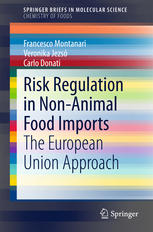

Most ebook files are in PDF format, so you can easily read them using various software such as Foxit Reader or directly on the Google Chrome browser.
Some ebook files are released by publishers in other formats such as .awz, .mobi, .epub, .fb2, etc. You may need to install specific software to read these formats on mobile/PC, such as Calibre.
Please read the tutorial at this link: https://ebookbell.com/faq
We offer FREE conversion to the popular formats you request; however, this may take some time. Therefore, right after payment, please email us, and we will try to provide the service as quickly as possible.
For some exceptional file formats or broken links (if any), please refrain from opening any disputes. Instead, email us first, and we will try to assist within a maximum of 6 hours.
EbookBell Team

5.0
30 reviewsThis Brief aims at providing a general understanding of the rationale – scientific as well as political – behind EU policy and related risk management decisions in the area on non-animal food imports. Lately, various menaces associated with imported food and feed of non-animal origin appeared in the media: imported sprout seeds contaminated with E. coli, strawberries containing hepatitis A or noro viruses, to name but a few, are now as much discussed as the different well-known meat scandals. The authors explain the reinforced official controls at EU borders on certain imports of non-animal origin and the wide range of EU measures that currently foresee trade restrictions for imports presenting chemical and non-chemical ‘high risks’ from a public health perspective (so-called ‘emergency measures’). The Brief closely examines chemical (and also non-chemical) risks associated with imports of non-animal origin and their impact on human health. The authors also consider the role risk analysis is playing to underpin risk-management decisions at EU level, including the scientific output by the European Food Safety Authority (EFSA).